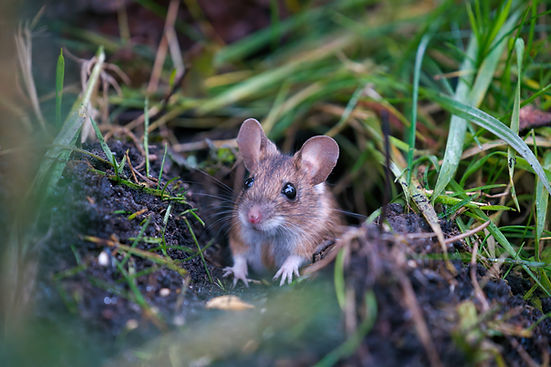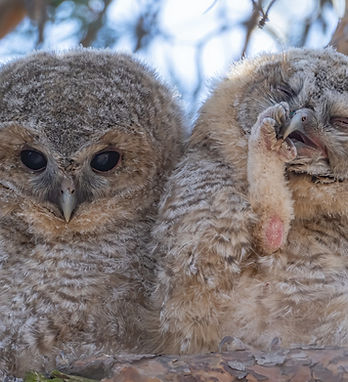
BRING COMPASSION BaCK TO WILDLIFE CONSERVATION
Did you know that ‘conservation’ methods are often invasive, violent and lethal? Animals are viewed through a hierarchical lens, allowing some to live while others are 'culled'. The data shows these methods don’t resolve wildlife issues, in fact they frequently create more issues. As compassionate conservationists, Verify Humanity seek natural solutions that promote life and a natural balance for all animals.
WE ARE VERIFY HUMANITY
WHAT IS COMPASSIONATE CONSERVATION?
Compassionate conservation emphasises the well-being of individual animals as well as species and ecosystems. It seeks to prevent harm to animals by using kind, non-violent conservation methods.
Compassionate conservation also involves researching wildlife to uncover hidden, or mis-represented issues. It also aims to find solutions that benefit both humans and wildlife while promoting empathy and respect for all living beings.

LATEST NEWS & ARTICLES

Have a story to share? Please get in touch if you'd like to have an article featured with us.

The New Hunting Ban
In preparation for a government consultation on the much-needed legislative changes to the Hunting Act 2004. Verify Humanity is proud to serve on its advisory board (known as Change Network) which will propose legislation to close legal loopholes and deliver a real ban on hunting.

Traffic is the biggest killer of red squirrels. They rely on wooded corridors to find their food, meaning they have to cross busy roads to move between increasingly isolated woodlands.
Compassionate Conservation Solution:
In-expensive rope bridges can be implemented to help red squirrels access food more easily and safely.
COMPASSIONATE CONSERVATION IN ACTION
Compassionate Conservation is saving red and grey squirrels. By recognising all animals as having the right to life, we can reject the culling of competitive species and develop solutions to the real problems that red squirrels face, such as traffic. Hover over the image to learn how!
END SPECIESISM, CHAMPION COMPASSION.
Speciesism assumes human superiority and has allowed us to construct a contradictory belief system where some animals are welcomed into our homes and others are exploited as insentient possessions. This is the belief system that has led to the Sixth Mass Extinction. It has normalised brutal processes such as factory farming, the illegal wildlife trade, entertainment killing, conservation culling and laboratory experiments.
Verify Humanity is on a mission to break down speciesist mindsets and show everyone how to get involved with compassionate conservation.
Whether it’s volunteering your time, signing petitions, being a voice for animals on government consultations, sharing our message, partaking in our research or helping animals yourself - like planting more flowers for the bees, there are lots of ways you can help wildlife.


HUMAN-WILDLIFE CONFLICT
Human-wildlife conflict is when encounters between humans and wildlife leads to negative outcomes, such as loss of property, livelihoods, and even animal or human life. Through our research we are identifying wildlife issues and finding compassionate solutions.











![Have you spotted more acorns on the ground this autumn?
That’s because 2025 was a Mast year! 🌰 🌳
Mast years happen every 3-5 years, when plant species such as oak and beech trees produce an overwhelming amount of seeds. [1] This is vital for the forest ecosystem, as it supports regeneration and tree vitality. [2] It provides a crucial food source for wildlife, such as deer, wild boar, squirrels, and birds, like the blue jay. Animals often shift their habitats and diets to oak forests during these years, leading to increases in local wildlife populations. It can even influence bird migration, often seen in bramblings, which winter further north following a large beech mast crop in Central Europe. Mast years aren’t random. Trees store energy for 1-3 years before, and certain weather patterns trigger this synchronized seed production. [3]
For wildlife, mast years mean a feast, a surge of food that helps animals thrive! 🐦🐿️🦌
#seed #forestwildlife #acorns #migration #forestecosystem
Sources
[1] Bogdziewicz, M., Espelta, J.M., Muñoz, A. et al. Effectiveness of predator satiation in masting oaks is negatively affected by conspecific density. Oecologia 186, 983–993 (2018). https://doi.org/10.1007/s00442-018-4069-7
[2] Karniski, C. Climate change weakens the tie between weather and mast seeding. Commun Biol 4, 479 (2021). https://doi.org/10.1038/s42003-021-02033-0
[3] Nussbaumer, A., Gessler, A., Benham, S. et al. Contrasting Resource Dynamics in Mast Years for European Beech and Oak—A Continental Scale Analysis. Frontiers in Forests and Global Change, 4, Article 689836 (2021). https://doi.org/10.3389/ffgc.2021.689836](https://scontent-den2-1.cdninstagram.com/v/t39.30808-6/605738330_1182194807354257_5287936887438865157_n.jpg?stp=dst-jpg_e35_tt6&_nc_cat=108&ccb=7-5&_nc_sid=18de74&efg=eyJlZmdfdGFnIjoiQ0FST1VTRUxfSVRFTS5iZXN0X2ltYWdlX3VybGdlbi5DMyJ9&_nc_ohc=DnhFoxPkSy4Q7kNvwEVbRmT&_nc_oc=AdlSa6wvMw4lW-hF3z5t24ObH2pLr88v6Ng_jz2bfK1AYHirSCp5lbz7CCv85ujWQP4&_nc_zt=23&_nc_ht=scontent-den2-1.cdninstagram.com&edm=ANo9K5cEAAAA&_nc_gid=O2wUN5ALlmvtG0Ku_9Xbzg&oh=00_AfrfhASWAvaXPgAb_LkbwuA-rvcHtwZnHMsubWb-ui9kZw&oe=69653CA7)






























![Hedgehogs can't eat pumpkin - please tidy up your jack o' lanterns! 🦔🎃❌
Hedgehogs are strict carnivores! They don't eat plants, and pumpkins are especially bad for upsetting their stomachs. It will give them indigestion, which leads to excessive diarrhoea and severe dehydration. At this time of year, hedgehogs need to retain as many nutrients as possible, so that they are big enough to survive hibernation. [1]
Instead of leaving pumpkins on the ground, put them high up! Birds love them, so your leftover jack o' lanterns will make great, nutritional snacks for our feathered friends!
Hedgehogs also love to hide in log piles around this time of year - please check for inhabitants before you light bonfires this season! You could also move log piles just before lighting them, to ensure that you don't miss any creatures living inside.
#hedgehog #pumpkin #pumpkincarving #jackolantern #halloween #verifyhumanity #conservation #compassionateconservation #wildlife #animalcare #animalrights #hibernation #october #november #autumn #bonfire #animallover #animalsarefriends
SOURCES
[1] https://forestfarm.org.uk/2021/10/25/pumpkin-is-bad-for-hedgehogs/#:~:text=Hedgehogs%20are%20meat%2Deaters%20and,survive%20hibernation%20over%20the%20winter.](https://scontent-den2-1.cdninstagram.com/v/t39.30808-6/571215392_1133549888885416_4232373286701281919_n.jpg?stp=dst-jpg_e35_tt6&_nc_cat=110&ccb=7-5&_nc_sid=18de74&efg=eyJlZmdfdGFnIjoiRkVFRC5iZXN0X2ltYWdlX3VybGdlbi5DMyJ9&_nc_ohc=0JpA8CrXK5kQ7kNvwEgEQko&_nc_oc=AdlQ1yuYw5C21YEvAhSBIe0tK_gqyqvbU880hBVWEgCiQ4sdoQgM-vxctwhDX55Y35Q&_nc_zt=23&_nc_ht=scontent-den2-1.cdninstagram.com&edm=ANo9K5cEAAAA&_nc_gid=O2wUN5ALlmvtG0Ku_9Xbzg&oh=00_AfqJj0LNgC-71UTu8SL_xexeRnBePmCkht6gsR6sLrHyZw&oe=69655F48)














